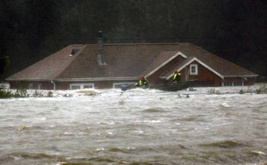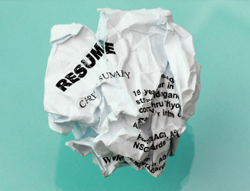Hurricane Isaac Hits the Unemployment Rate
19 September 2012

When Hurricane Isaac grazed the Gulf Coast states and hit Louisiana, unemployment also took a hit; unemployment numbers were at the highest point in two months. Nine states were affected by Isaac, and 15,000 more people than the previous week joined the rolls of the unemployed. U. S. Labor department numbers record 367,000 newly unemployed the week before the hurricane, and 382,000 afterwards.
But the unemployment rate itself dropped, how can this be? Because many people’s benefits expired, and they are no longer on the books. Add to that the number of people who have had no benefits for a while and those that have given up looking for jobs, said to be at an all time low of just over 60-percent, and you have a true unemployment rate of between 11- and 12-percent. Then add to that all the underemployed people, the slowest economic recovery since the Great Depression, and a presidential election, and you end up with media spin and smoke and mirrors. Job creation, while much better than a few years ago, is not effectively keeping up with unemployment. And it doesn’t look like it’s going to get better any time soon.
The Federal Open Market Meeting of the Federal Reserve met September 12th and 13th and announced several interventions meant to keep inflation below 2-percent and to support a stronger economy. They will increase their mortgage-based securities purchases $40 million more per month to keep long-term interest rates low. They will also keep the federal funds rate between 0- and ¼- percent through 2015. And if neither of these policies works, they will continue to increase their purchase of mortgage-based assets to continue putting pressure on keeping interest rates low in order to encourage economic growth.
What does this mean for the average job seeker? The game is smaller and there are more competitors. It’s time to polish that resume to a high shine, practice your interviewing, and network more than you’ve ever networked before. Mortgage rates will remain low, and that’s good for people seeking homes or are refinancing, but that’s not usually the unemployed. Mortgage rates aren’t the only long-term interest rates, though. The Feds are hoping that the lower interest rates will entice companies both large and small to expand, invest, and increase their hiring. That’s good for everyone.
For those in Mississippi and Louisiana who lost their job because of the hurricane, take hope. Both states have authorized disaster unemployment insurance in certain areas. Self-employed people who have also found themselves out of work may qualify as well; proof of income and other information is required. The following parishes in Louisiana are eligible: St. Bernard, Plaquemines, Lafourche, Livingston, Ascension, Orleans, Jefferson, St. John the Baptist and St. Tammany. Contact your local Louisiana Workforce Commission office. Eligibility in Mississippi is limited to the following counties: Adams, Amite, Clarke, Forrest, George, Hinds, Lincoln, Marion, Pike, Stone, Walthall, Warren, and Wilkinson. Contact your local Mississippi Department of Employment Security office.




